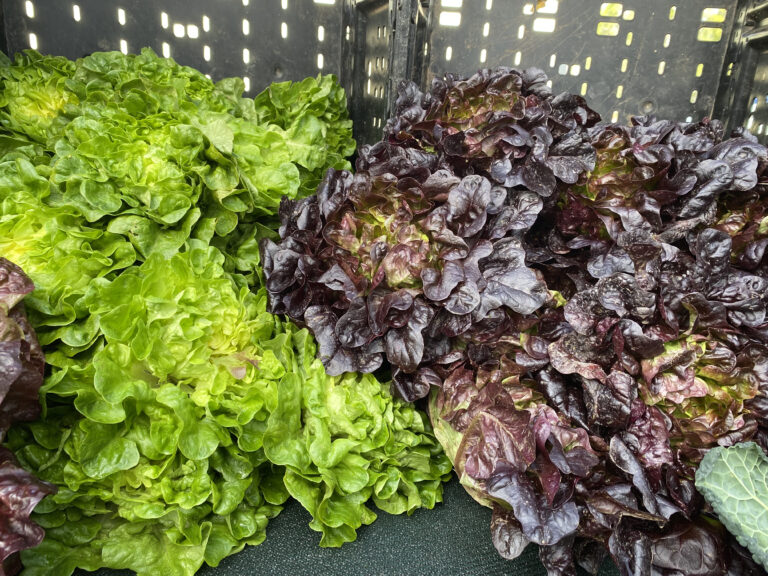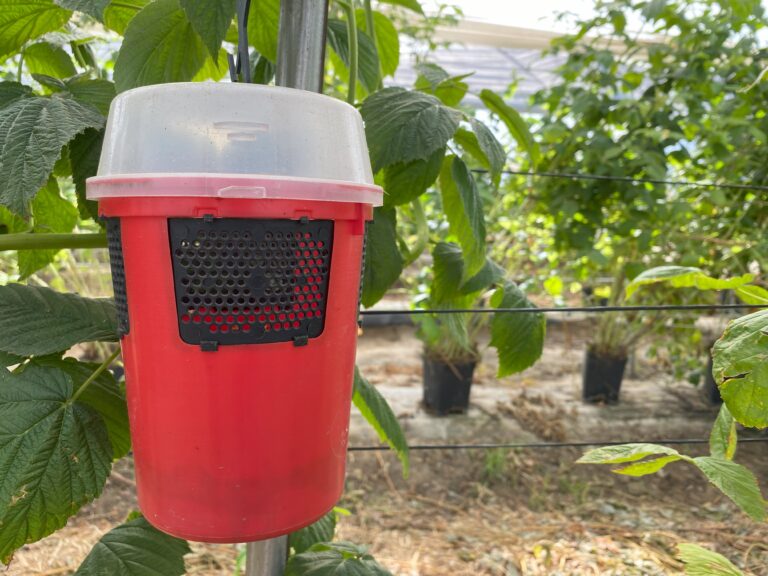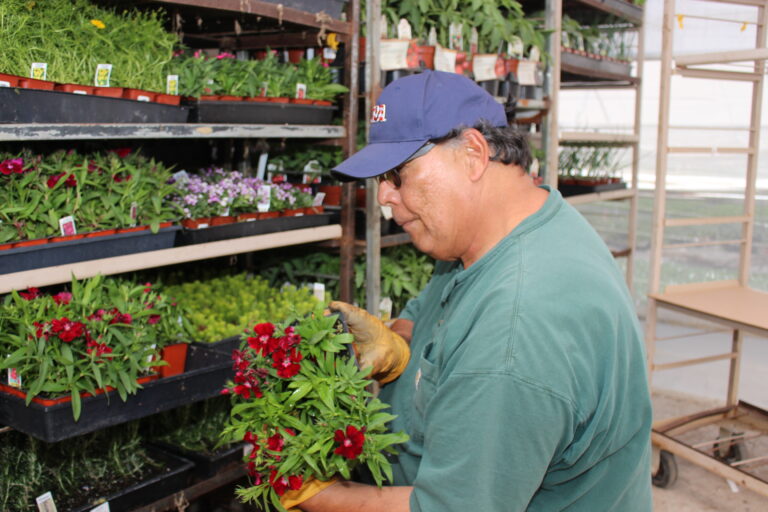Agriculture & Consumer Protection
The Agriculture & Consumer Protection division aims to protect Ventura County’s agriculture, environment, and consumers through programs in pest detection, organic certification, farmers’ market oversight, and produce quality standards. In partnership with federal, state, and local agencies, we monitor and manage the introduction and spread of invasive and nuisance pests, uphold produce standards, and ensure transparency in agricultural products. Our goal is to strengthen our agricultural industry and help provide consumers with reliable, high-quality food and goods.

Celery Mosaic
Celery mosaic disease, caused by the celery mosaic virus, is primarily transmitted by aphids, which spread the virus as they feed on the sap of infected plants. By having a host-free period, where no celery can be grown in the county, we greatly decrease the aphids present. We also certify greenhouses as a pest-free place of production, allowing producers to start growing celery to be transplanted into the field once the host-free period is over.
Citrus Maturity
We play a vital role in maintaining the quality and marketability of citrus fruit through an industry-funded citrus maturity inspection program. This program ensures that oranges, lemons, and other citrus fruits meet established maturity standards before being harvested and sold, guaranteeing consumers receive high-quality, flavorful produce. Inspectors assess key factors such as sugar content, and color to determine compliance with state regulations.
Through these efforts, we support the local citrus industry by maintaining high-quality standards and protecting consumer trust in California’s citrus products. By working closely with growers and industry stakeholders, our department helps sustain California’s reputation for producing exceptional citrus fruit.


Certified Farmers' Markets
Our department manages the Ventura County’s jurisdiction of the CDFA’s direct marketing program. This initiative allows farmers to become Certified Producers, enabling them to sell their produce at Certified Farmers’ Markets (CFMs).
By conducting market and field inspections, we ensure compliance with laws and regulations, safeguarding the integrity of the program. This not only promotes direct sales to the consumers, but also builds consumer trust and supports the local food system.
Organic Audits
Our department conducts organic audits, including inspections, residue sampling, and compliance reviews, to ensure adherence to organic standards, protect the organic label’s integrity, and support consumer confidence.


Pest Detection & Trapping
Our department conducts targeted pest trapping to detect invasive species early which protects local agriculture and the environment by developing effective pest management strategies for sustainable agriculture.
Pierce's Disease Control / Glassy-Winged Sharpshooter Program
Pierce’s disease, caused by the bacterium Xylella fastidiosa, is primarily spread by the glassy-winged sharpshooter (GWSS), a vector that feeds on the xylem of grapevines, leading to significant agricultural loss. The Pierce’s Disease Control Program, which is partially funded by the grape industry through the CDFA, aims to protect vineyards through inspections, quarantine enforcement, and stakeholder education. Our department plays a key role by inspecting nursery stock, collaborating on pest control research, and implementing integrated strategies to reduce GWSS spread and safeguard the state’s grape industry.


Retail Egg Inspections
Our department is committed to ensuring the safety, quality, and integrity of eggs sold at retail locations throughout the county. Under California’s Egg Safety and Quality Management Program, we conduct regular inspections to verify that eggs are properly labeled, stored at safe temperatures, and meet quality standards. Inspections include checking for compliance with refrigeration requirements, ensuring eggs are free from defects, and confirming accurate labeling to provide transparency for consumers. These efforts protect public health, prevent the sale of unsafe or substandard eggs, and maintain consumer confidence in the products available in Ventura County.
Standardization
Our department plays a crucial role in enforcing California’s Standardization Program, which ensures that fresh fruits, vegetables, and nuts meet specific quality standards. Under this program, we conduct inspections at various points in the supply chain, including packinghouses, wholesale markets, roadside stands and retail outlets. The goal is to remove substandard products from the market, ensuring consumers purchase commodities that meet acceptable California quality standards.
We also enforce regulations concerning the maturity, quality, size, labeling, and packaging of these commodities. In cases of citrus, inspectors verify that products meet maturity standards and check for consistency in packaging and labeling. The program is industry-funded, with fees collected from commodity producers, and supports the integrity of California’s agriculture industry by ensuring that only quality products reach consumers. This collaborative effort fosters a sustainable and trustworthy market for California-grown produce.

Deputy Agricultural Commissioner
Agriculture & Consumer Protection
Shravan Dasoju
(805) 933-2926 ext. 1113
